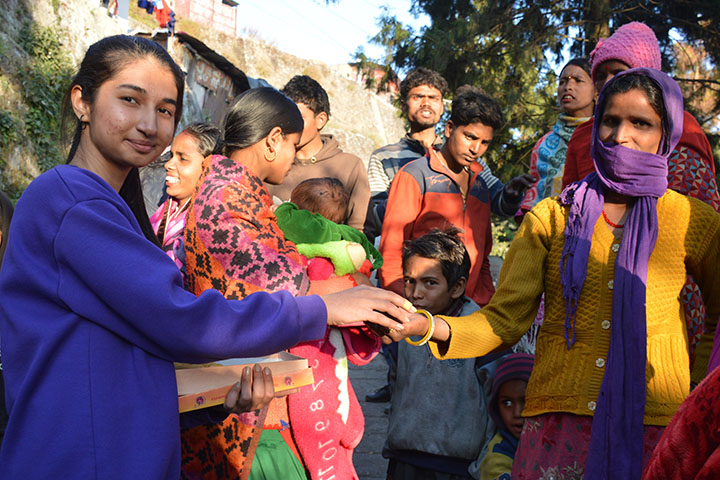
05 Apr Kindness is catching on
As we move through this present crisis of a global pandemic fraught with its many challenges, losses, and disappointments, there appear to be emerging some unintended consequences that offer hope towards a better future.
One positive to come from the pandemic is the spontaneous wave of kindness that has emerged in response. Around the world, we’re hearing stories of people who are doing what they can to help those in need or celebrate the work of healthcare and other essential workers. Retired doctors and nurses are returning to work, often putting their own health at risk because of their altruism. People are setting up support groups for vulnerable people in self-isolation, including the ‘caremongering’ movement emerging in Canada. Others are reported to have paid for healthcare workers’ shopping, and many millions in countries including the UK, Spain, Italy and of course India, have applauded them and other keyworkers from their doorsteps.
Of course, kind gestures at a time of crisis are one thing; whether this translates to meaningful change in the long-term, is something else altogether. Eric Klinenberg, professor of sociology and director of the Institute for Public Knowledge at New York University, thinks it may well stick. He believes the pandemic will mark “the end of our romance with market society and hyper-individualism”, as people see that self-serving behaviour has aggravated the situation and neo-liberal markets fail to deliver or heave under this unprecedented and almost universally unforeseen pressure.
Klinenberg describes a society that through the lens of the pandemic, will move us towards a greater appreciation of how interlinked and interdependent we all are, with a reorientation of our politics and investment in the common good as a result. If the person who’s cooking your food can’t afford to take time off when they’re sick, or another can’t self-isolate because they have to walk hundreds of miles in search food and shelter, ultimately there is likely to be a societal cost to pay. People may start to feel that a more equitable society is better value for money in the long term.
Klinenberg concludes, “The coronavirus pandemic is going to cause immense pain and suffering. But it will force us to reconsider who we are and what we value, and, in the long run it could help us rediscover the better version of ourselves.”
Kindness and compassion are qualities we hope to instil in our students. Not necessarily with a view of this being reciprocated, but because being kind and compassionate are the right things to do.
In a recent article about the good that can come out of an upside-down work, Matthew Syed, the author of ‘Rebel Ideas: The Power of Diverse Thinking’, cites a study of more than 600 medical students over the course of their studies. In their first year, the ‘selfish’ students, who focussed on their own progress, extracting information while offering little in return, outperformed students who were willing to spend time on supporting and sharing insights with their fellow students. But by the second year, the latter group had caught up, and by the final year, they gained significantly higher grades than their less generous peers. The students hadn’t changed, but the nature of the course had.
Adam Grant, psychologist and author of ‘Give and Take: Why Helping Others Drives Our Success’ explains, “As students progress through medical school, they move from independent classes into clinical rotations and patient care. The further they advance, the more their success depends on teamwork and service. Whereas takers sometimes win in independent roles where performance is only about individual results, givers thrive in interdependent roles where collaboration matters.”
Kindness and compassion are qualities we hope to instil in our students. Not necessarily with a view of this being reciprocated, but because being kind and compassionate are the right things to do. After all it’s one of our Guiding Principles at Woodstock, which we think makes this world a better place.
I personally will be lighting a candle on Sunday night, along with many hundreds of millions across India, to thank all those workers who are keeping the country going while we have the relative luxury of staying at home to do our part fighting Covid-19. I’ll be thinking particularly of those healthcare professionals working tirelessly around the world on the frontlines against the coronavirus. These are some of the best that this world has to offer in terms of practicing kindness and compassion to those in need. Join with me in celebrating their commitment to these values during this time of trial.
Dr Craig Cook, Principal






M,L.Gaur
Posted at 01:40h, 07 AprilGreat thought by the man of God: “Kindness and compassion are qualities we hope to instil in our students. Not necessarily with a view of this being reciprocated, but because being kind and compassionate are the right things to do. ”
Our Country needs such helping hands from the great personalities.
May God bless you.